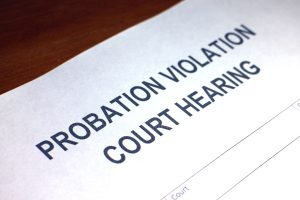 If you’re arrested in Broward County, you might qualify for a Florida criminal case outcome that involves “withholding adjudication.” As a Fort Lauderdale criminal defense lawyer can explain, this is a type of case outcome that isn’t a conviction – but it isn’t an acquittal or dismissal either. If you’re likely to be convicted, a judge’s decision to withhold adjudication can be a preferrable outcome. However, if you’re innocent and/or there’s strong evidence supporting your defense, it may not be in your best interest to agree to an outcome of withholding adjudication.
If you’re arrested in Broward County, you might qualify for a Florida criminal case outcome that involves “withholding adjudication.” As a Fort Lauderdale criminal defense lawyer can explain, this is a type of case outcome that isn’t a conviction – but it isn’t an acquittal or dismissal either. If you’re likely to be convicted, a judge’s decision to withhold adjudication can be a preferrable outcome. However, if you’re innocent and/or there’s strong evidence supporting your defense, it may not be in your best interest to agree to an outcome of withholding adjudication.
It’s really important if prosecutors offer a plea deal in a criminal case that involves withholding adjudication that you confer first with an experienced South Florida criminal defense attorney who can explain how this is likely to play out in your case, and whether it’s wise given the unique circumstances of your situation. There are many scenarios for which fighting the charges or agreeing to plead guilty to a lesser charge is actually your best option.
What Does It Mean to Withhold Adjudication?
Essentially, withholding adjudication is a means of suppressing judgment. Per F.S. 948.01, judges in Florida are empowered to withhold adjudication for certain offenses and certain defendants. A person whose case ends in the judge withholding adjudication will face some sanctions (which will include probation), but not a formal conviction (unless they violate certain terms of the agreement).
This option is generally extended in cases involving:
- First-time offenders.
- Individuals not likely to re-offend.
- Victims who were not seriously injured.
- Those NOT facing first-degree felony, life felony, or capital felony charges.
- Defendant is NOT facing a third-degree domestic violence charge – unless the prosecutor has made a special request OR the court finds there are mitigating circumstances (per F.S. 775.08435).
- Defendant is NOT facing a DUI charge.
Although adjudication withheld can technically be granted for those facing second-degree felonies and third-degree felonies, it’s generally unlikely unless there are mitigating circumstances and the defendant has no history of prior offenses.
Adjudication withheld does NOT mean that the charges have been dropped (i.e., a nolle prosequi). Only the state attorney’s office can do that. Furthermore, while it’s technically a means to avoid conviction, some out-of-state commercial and government organizations may not recognize a “withhold” issued in Florida. Instead, they view it akin to conviction. As to whether you’re required to disclose these cases in paperwork for employment, financial assistance, housing, etc., it depends on how the question is asked. If the question is, “Have you ever been arrested or charged with a criminal offense?” your answer may still need to be “Yes.” If the question is whether you’ve been convicted, you can safely answer “no,” at least where this specific charge is concerned.
It’s also worth pointing out that if the case for which you’re seeking to have adjudication withheld involves a civil traffic violation that you’re hoping won’t show up on your commercial driver’s license record: No dice. Federal law – specifically 49 CFR 384.226 – prohibits this.
Benefits to Adjudication Withheld in Florida
All that said, having a criminal conviction “withheld” can be a best-case-scenario alternative outcome in cases where there’s strong evidence to support conviction. Our Broward criminal defense attorney team will try to do all we can to advocate for adjudication withheld in cases where it makes good sense to do so. Continue reading
 Fort Lauderdale Criminal Attorney Blog
Fort Lauderdale Criminal Attorney Blog







